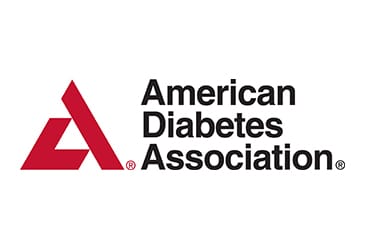ARLINGTON, Va. — Personalized nutrition plans, nutrition for optimal weight management, and the prevention and management of diabetes complications including cardiovascular and kidney disease and gastroparesis, are detailed in the new guidance document, Nutrition Therapy for Adults with Diabetes or Prediabetes: A Consensus Report (Consensus Report), produced by a panel of experts assembled by the American Diabetes Association (ADA). The Consensus Report is published online in Diabetes Care, the ADA’s flagship clinical research journal.

The Consensus Report was produced by a national panel of 14 distinguished professionals with diverse scientific, clinical and nutrition expertise. The group included registered dietitian nutritionists, certified diabetes educators, endocrinologists, a primary care physician and a patient advocate, who answered a national call for experts. Nine additional peer experts in diabetes and the ADA’s Professional Practice Committee reviewed the Consensus Report. The Consensus Report panel performed a comprehensive review of more than 600 key nutrition manuscripts published from 2014 through 2018. The resulting recommendations focus on key areas of nutrition management and guidelines to achieve optimal diabetes management, reduce complications, and improve quality of life for adults with type 1 or type 2 diabetes or prediabetes. This Consensus Report is an update to the ADA’s 2014 Position Statement on nutrition therapy for adults with diabetes and is incorporated today, simultaneously, into the ADA’s Standards of Medical Care in Diabetes—2019 as a Living Standards Update.
New guidelines and highlights in the report include:
- The Consensus Report panel emphasizes that there is not one, single recommended nutrition plan for all people with diabetes given the broad spectrum of people affected by diabetes and prediabetes, as well as other factors, such as cultural preferences, food availability and socioeconomic factors.
- Evidence suggests there is no ideal percentage of calories from carbohydrate, protein and fat for all people with diabetes or at-risk for diabetes, and a variety of eating patterns (combinations of different foods or food groups) are acceptable for the management of diabetes and prediabetes.
- Macronutrient distribution should be personalized based on individualized assessment of current eating patterns, preferences and metabolic goals.
- Prior to this Consensus Report, the presence of obesity in type 1 diabetes was not specifically addressed. The panel determined that similar to type 2 diabetes, the presence of obesity with type 1 diabetes can worsen insulin resistance, glycemic variability, microvascular disease complications and cardiovascular risk factors. Therefore, weight management has been recommended as an essential component of care for people with type 1 diabetes who have overweight or obesity.
- For purposes of weight loss, the ability to maintain and sustain an eating plan that results in an energy deficit, irrespective of macronutrient composition or eating pattern, is critical for success.
- A comprehensive “Table on Eating Patterns Reviewed” graphic (Table 3) summarizes various types of eating patterns and the benefits reported. The panel notes that studies comparing the same two or more eating patterns could easily differ in the investigators’ definition of the patterns, the effectiveness of the research team in fostering pattern adherence among study participants, the accuracy of assessing pattern adherence, study duration and participant population characteristics. Overall, few long-term (2 years or longer) randomized trials have been conducted of any of the dietary patterns in any of the conditions examined.
- An important distinction made by the consensus group was that until there is convincing and scientifically validated evidence surrounding comparative benefits of different eating patterns in specific individuals, health care providers should focus on the key factors that are common among the patterns. These key factors include an emphasis on non-starchy vegetables, minimizing added sugars and refined grains, and choosing whole, unprocessed foods over processed foods to the extent possible.
- Replace sugar-sweetened beverages (SSBs) with water as often as possible. Using sugar substitutes does not make an unhealthy choice healthy; rather, it makes such a choice less unhealthy.
- In general, replacing saturated fat with unsaturated fats reduces both total cholesterol and LDL-C and also decreases cardiovascular disease (CVD) risk.
- Research indicates medical nutrition therapy for adults with type 2 diabetes can result in hemoglobin A1c (A1C) reductions that can be similar to or greater than what could be expected with treatment using currently available medications.
- Also notable is the addition of critical information on the integral role nutrition therapy plays in the prevention and management of diabetes complications, including CVD, diabetes kidney disease and gastroparesis.
- The importance of referring adults living with type 1 or type 2 diabetes to individualized, diabetes-focused medical nutrition therapy (MNT) upon diagnosis and as needed throughout their life span is addressed, considering that national data indicates most people with diabetes do not receive any nutrition therapy or formal diabetes education.
- Additional emphasis is placed on coordinating and aligning the MNT plan with the overall management strategy, including use of medications and physical activity, on an ongoing basis.
Nutritional interventions and considerations for adults diagnosed with prediabetes are included in the recommendations for the first time. Additional key messages include:
- People with prediabetes should be referred to an intensive behavioral lifestyle intervention program modeled on the Diabetes Prevention Program and/or an individualized nutrition plan with the goals of improving eating habits, increasing moderate-intensity physical activity to at least 150 min per week, and achieving and maintaining 7–10% loss of initial body weight, if needed.
- When health care providers, including RDNs and diabetes educators, are counseling individuals with diabetes and prediabetes about weight management, they should give special attention to prevent, diagnose and treat disordered eating.
- The Consensus Report panel found that studies using personalized nutrition approaches to examine genetic, metabolomic and microbiome variations (gut health/microbiome) have not yet identified specific factors that consistently improve outcomes in type 1 diabetes, type 2 diabetes or prediabetes.
“‘What can I eat?’ is the number one question asked by people with diabetes and prediabetes when diagnosed. This new Consensus Report reflects the ADA’s continued commitment to evidence-based guidelines that are achievable and meet people where they are and recommends an individualized nutrition plan for every person with diabetes or prediabetes,” said the ADA’s chief scientific, medical and mission officer Dr. William Cefalu. “The importance of this consensus also lies in the fact it was authored by a group of experts who are extremely knowledgeable about numerous eating patterns, including vegan, vegetarian and low carb.”
“As detailed by the latest evidence, there is no one, single nutrition plan to be recommended for every person with diabetes due to the broad variability of diabetes for each individual, as well as other life factors such as cultural backgrounds, personal preferences, other health conditions, access to healthy foods and socioeconomic status. The ADA strongly encourages an individualized approach that includes regular review of nutrition status for all people living with diabetes. Reassessment of an individual’s nutritional plan is particularly important during significant life and health status changes, and includes nutrition counseling and guidance to achieve overall improved health and wellness that supports appropriate weight management, reducing diabetes complications and improving quality of life. Working with a team of health providers including a registered dietitian or certified diabetes educator is fundamental to effectively managing diabetes and prediabetes,” concluded Dr. Cefalu.
“Nutrition Therapy for Adults with Diabetes or Prediabetes: A Consensus Report,” was produced by co-chairs Alison B. Evert, MS, RD, CDE, University of Washington – UW Neighborhood Clinics, Seattle, WA; and William S. Yancy, Jr., MD, MHS, Duke University, Durham, NC; and additional authors Michelle Dennison, PhD, RDN, LD, BC-ADM, CDE, Oklahoma City Indian Clinic, Oklahoma City, OK; Christopher Gardner, PhD, Stanford University, Stanford, CA; Timothy Garvey, MD, University of Alabama at Birmingham, Birmingham, AL; Ka Hei Karen Lau, MS, RDN, CDE Joslin Diabetes Center, Boston, MA; Janice MacLeod, MA, RD, CDE, Companion Medical, Inc., Columbia, MD; Joanna Mitri, MD, MS, Joslin Diabetes Center, Boston, MA; Raquel Pereira, MS, RDN, CD, CPPM, CSM, Simple Concept Consulting, Snoqualmie, WA; Kelly Rawlings, MPH, Vida Health, San Francisco, CA; Shamera Robinson, MPH, RDN, LDN, American Diabetes Association, Arlington, VA; Laura Saslow, PhD, University of Michigan School of Nursing, Ann Arbor, MI; Sacha Uelmen, RDN, CDE, American Diabetes Association, Arlington, VA; and Patricia Byers Urbanski, MEd, RD, LD, CDE, St. Luke’s Hospital, Duluth, MN. Author disclosures are noted in the manuscript, and the manuscript details the nine distinguished professionals who served as peer-reviewers.
Nutrition Therapy for Adults with Diabetes or Prediabetes: A Consensus Report is available online in Diabetes Careon Thursday, April 18, at 1:00 p.m. ET. The complete, annotated Standards of Care, which includes updates to align with this Consensus Report, can be accessed online on Diabetes Care. The Abridged Standards of Medical Care in Diabetes have also been updated and can be accessed online at Clinical Diabetes.




